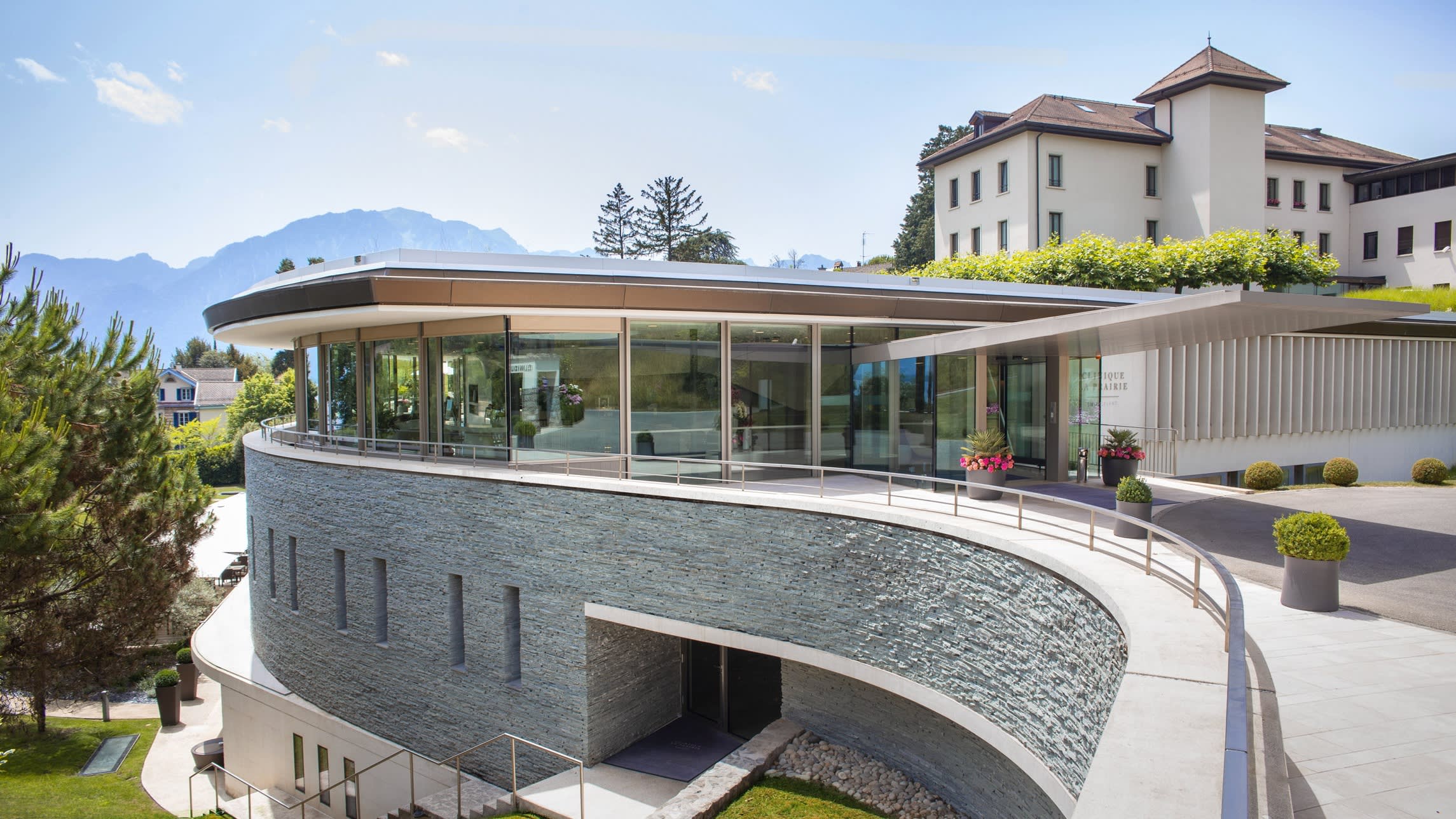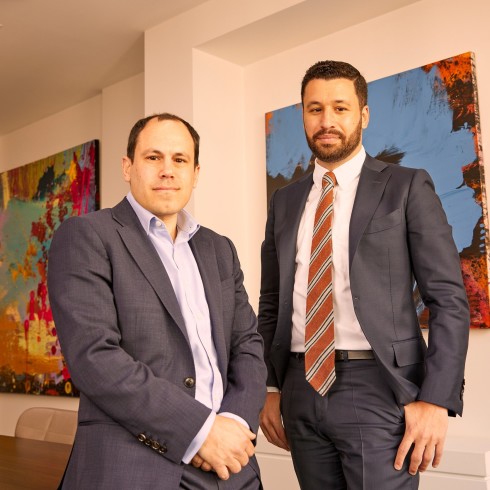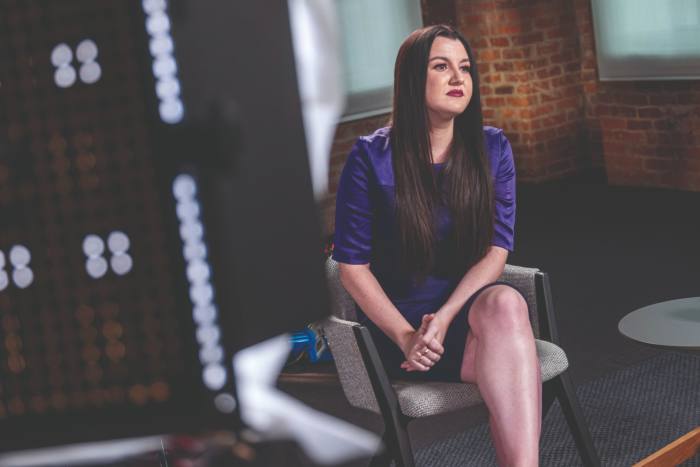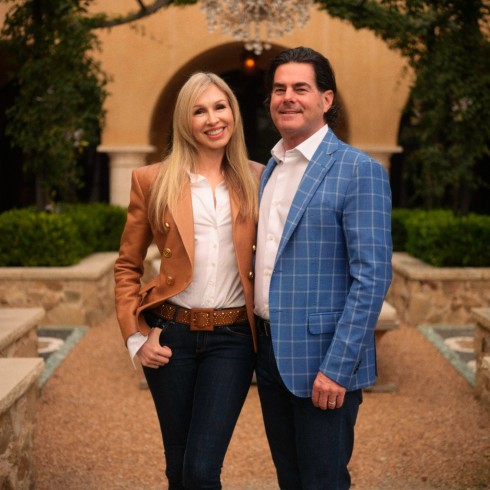‘Biotech is the ultimate impact investment’ — family offices can’t get enough of it
The Lauber family built its wealth in real estate, and that’s where it stayed for decades. But, lately, some of the family money has a buzzy new destination: biotech.
“I’m kind of like a hypochondriac,” says Robin Lauber, the third-generation heir who is diversifying the Swiss family’s wealth, mainly into companies working in cutting-edge biology. Lauber, 30, is particularly interested in longevity medicine, a nascent strand of research that aims to slow down the ageing process.

In 2008, the Strüngmann brothers supported BioNTech with a €136.5mn seed investment in a €150mn round that enabled the founding of the company, according to Highworth Research.
They own 43.5 per cent of BioNTech through an investment vehicle called AT Impf, according to a recent SEC filing, making their stake worth around $14bn. “It’s a great example of the capacity of a single family office to deploy patient capital,” says Highworth’s Graham.
Examples such as this have helped Lauber to make the case to other family offices for investing in the sector. “Covid has shown them that biotech investing can be super rewarding,” he says. “Biotech is the ultimate impact investment.”
As family offices embrace biotech, they are getting smarter about it. Over the past 10 years, family offices have become more professional in how they assess potential investments in healthcare, says Masha Strømme, a former investment banker and research scientist whose Oslo-based family office funds and mentors early-stage biotechs. Her family office’s holdings include Exact Therapeutics, which is developing the use of ultrasound to deliver cancer therapy more effectively.
“PhDs in microbiology and biochemistry as well as medical doctors are now running investments for some of these family offices,” she says. “People are gearing up to know what they invest in,” she says. In the past, many family-office investments into biotech were made “with the heart” into diseases that affected a member of the family, or its close associates, she notes.
Biotech itself may be a relatively risky proposition, but there are ways of reducing risk. The buildings used by the sector, for example, could be a safer bet. That is the view of the Noé Group, the family office of the UK-based Noé family, which made its money in property and is now headed by Leo Noé, son of the founder, Salomon.
In 2020, the Noé Group invested in a large campus in Eindhoven in the Netherlands that brings together laboratories, clean rooms and manufacturing facilities alongside spaces for offices and university lectures. The campus aims to attract a broad range of tenants, from universities to start-ups and larger companies, in order to create a scientific ecosystem.
Noé’s sons, Zvi and Raphael, first visited the site in 2018 and were ready to make an investment in early 2020. The pandemic delayed the investment by a few months, but it also helped to reinforce the case. While people stayed away from offices and retail spaces, laboratories and manufacturing sites were still humming.

Earlier this year, the Noé Group invested €30mn in three buildings with laboratory space in Madrid, Spain, and the brothers say they intend to further expand their portfolio of life science real estate.
Life science is a sector with fast-growing space requirements, says David Bloom, Leo Noé’s son-in-law. That’s in part because biological research increasingly depends on sifting through enormous data sets produced by advances such as large scale genomic sequencing, and those data centres need space. “From a real estate perspective, that’s a good thing,” he says. Bloom’s arm of the Noé Group invests in data centres. Its portfolio includes the Kao Data Campus, in Harlow, which houses Cambridge-1, one of the most powerful computers in the UK.
The Covid-19 pandemic put life sciences under a spotlight, accelerating a growing interest in healthcare that was already under way among family offices, says Nooman Haque, a life sciences investor based in the UK. He says family offices have risen in prominence as sources of capital for venture funding rounds. “It’s not unusual now, even in the UK, for a company when on a fundraising trail to identify a handful of family offices,” he says. “That door has been opened a little bit.”
For some family offices, investment in healthcare is deeply personal, says Los Angeles-based Greg Suess, an adviser to Forbes 400 families for Activist Artists Management, a talent management and advisory group. A few years ago, Suess set up a fund whose key investment themes include the therapeutic applications of cannabis after several of his clients asked about it. Many had personal reasons for their interest, such as a relative with arthritis or anxiety. He says about 20 families are involved in the Activist Green Fund, which manages $2.2mn.
“I got the life-science bug early on,” says veteran tech entrepreneur Hermann Hauser, who co-founded Acorn Computers in 1978, then the chipmaker Arm in 1990. His first meaningful foray into biotech was an early investment in Cambridge-based genome sequencing company Solexa, which was founded in 1998 and later acquired by San Diego-based Illumina for $600mn.
Hauser was impressed by the rate of progress: the cost of sequencing the human genome fell from $10mn to $1,000 — or a factor of 10,000 — between 2007 and 2014. By comparison, the cost of semiconductors took a decade to reduce by a factor of 30, he says. His conclusion: “Computing is incredibly slow compared to life sciences.”
Since then, Hauser has been a key investor in life sciences, both through his family office and the venture capital firm that he co-founded, Amadeus Capital Partners. He says his personal portfolio is split equally between bioscience and tech.
Many figures from the tech world are putting their money into healthcare. Bezos is reported to be a key investor in Altos Labs, a start-up with sites in San Francisco, San Diego and Cambridge, UK, which says its mission is to use “cellular rejuvenation programming to reverse disease, injury and the disabilities that can occur throughout life”. In 2021, PayPal founder and billionaire, Peter Thiel invested heavily in Utah-based Blackrock Neurotech, which aims to help neurologically impaired patients regain lost skills.
Fidji Simo, chief executive of the delivery company Instacart, has co-founded a new medical and research centre in Salt Lake City, Utah, focusing on diseases that involve both the immune and nervous systems.

Paul Kessler and Diana Derycz-Kessler, a husband-and-wife team who are longtime investors in biotech and also founded the Los Angeles Film School, prefer to invest in later-stage public companies via private investment in public equities, or Pipe. During the 1990s, Kessler was one of the pioneers of this investment style, where companies issue shares to private investors directly, rather than through the stock market, although those shares may subsequently be traded publicly. Kessler says Pipe investing allows him to get closer to the management teams and better understand the science.
He says the majority of the couple’s investments are in biotech, although they also invest in energy and tech. “What fascinated me about biotechnology and drug development was how it could extend, improve and create happier lives for people who’ve been afflicted by a horrible disease,” he says. “How many can say they don’t know someone afflicted by cancer?”

Sometimes, the personal aspect comes later. A few years ago, the Kesslers invested in Iovance Biotherapeutics, a cancer immunotherapy company whose most advanced experimental treatment is for melanoma. They were impressed by the science behind the company, which arose from research conducted at the National Cancer Institute in the US under top scientist Steven Rosenberg.
After investing in Iovance, Kessler received a melanoma diagnosis, which has since been treated successfully by surgery. He says: “Because of my melanoma diagnosis — and thereafter surgery — that became very personal.”
This article is part of FT Wealth, a section providing in-depth coverage of philanthropy, entrepreneurs, family offices, as well as alternative and impact investment
This story originally appeared on: Financial Times - Author:Denise Roland

























